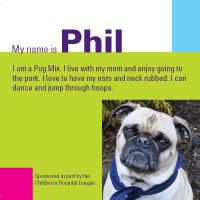By Caroline Rider
For many families with children, summer is a time for vacations, outings, and fun. However, a summer vacation when your child has cancer can seem out of the question. But sometimes, a summer getaway is just what the doctor ordered.
By Caroline Rider
For many families with children, summer is a time for vacations, outings, and fun. However, a summer vacation when your child has cancer can seem out of the question. But sometimes, a summer getaway is just what the doctor ordered.
Having cancer can be isolating. Even if you’re surrounded by friends and loved ones, you may feel that no one understands what you’re going through. That’s why it can be helpful to join a support group attended by people who face a similar diagnosis, or are in your peer group. Here are some of the … Read more
Having cancer as a teen or young adult can throw your life off track. Just when you’re learning to drive, planning your prom, or playing your favorite sport, you find yourself sick, bald, and in the hospital. And you worry about your appearance – especially if you’re a girl.
Getting cancer can be particularly difficult for young adults – classified by the National Cancer Institute as ages 15 to 39. Because the disease is relatively rare in this age group, these younger patients may find themselves isolated – too old to fit easily into childhood cancer programs, and too young to find peers in adult clinics (most people diagnosed with cancer are 55 or older).
But the outlook is getting brighter.
A cancer diagnosis can put even the most organized person into a state of disarray. That’s not surprising, because it’s normal to feel overwhelmed and out of control in the face of such stress. But there are steps you can take to ensure you’re best prepared for the road ahead. Don’t forget to: Slow down … Read more
“Stay positive, I know it helps.”
“What steps would you suggest I take to support my dad through all of this?”
“I am a new member of this group.”
These conversations are occurring online, at any time of day, in a community most people would not want to join: A group of cancer patients.
By Lola Baltzell
People often ask me: How do you manage to live with metastatic breast cancer? One of the most important strategies for me has been building a support network.
My diagnosis of breast cancer that had already spread to my bones came out of the blue. I had a normal mammogram 13 months earlier, and no known risk factors. So when I heard the news in August 2008, my first impulse was to reach out for support.
Every Sunday, the Cutter family holds a Chemofeast. The door to their home is open to any and all who wish to attend. It’s a day full of food, beverages, and a lot of laughter, and 15-year-old Blake Cutter gets to choose the menu. Then on Monday, his mother, Lois, drives him to chemotherapy at Dana-Farber.
With the pitter patter of small feet, Phil makes his way through the halls of Boston Children’s Hospital. He walks with a purpose, boarding the elevator that takes him to the oncology floor for his next appointment.

Phil is a new face in 6 North, the oncology unit at Dana-Farber/Boston Children’s Cancer and Blood Disorders Center. A spunky pug mix who knows a trick or two, Phil is one of nine therapy dogs who visit pediatric patients at Boston Children’s Hospital as part of the Pawprints Program. What he lacks in medical credentials and size, he easily makes up for in heart.
For most people, a cancer diagnosis brings the daily routine of life to a grinding halt, at least temporarily. But after the initial shock wears off, many patients strive to resume their everyday activities, including vacation or travel plans. Being treated for cancer doesn’t necessarily mean cancelling your summer vacation. Many people travel during and … Read more
Watch and wait. That’s often one of the new terms added to your vocabulary when you’re diagnosed with cancer. Or maybe it’s wait and watch. Or active monitoring. Whatever it’s called, sometimes it’s the term used when there’s nothing to do to treat your particular cancer but wait. That’s a hard thing to do, most doctors … Read more
For people with cancer, deciding how, and what, to tell others about the diagnosis can be a challenge. How do you tell your loved ones, or your employer, that you have cancer?
For parents, there’s another degree of difficulty: What do you say to your children? How much will they understand, and what’s the best approach?
Susan Englander, LICSW, a social worker at Dana-Farber Cancer Institute who specializes in working with young adult patients — many of whom have children — offers these tips to parents with cancer on how to talk to their kids and help them through the process.
The Super Bowl this weekend is the result of a lot of training and planning (and luck) on the part of the two competing teams. Players have to know their roles and everyone needs to work to the same game plan — and be ready to change tactics in an instant. In the same way, … Read more